BSc SH Business and Entrepreneurship with foundation and sandwich years
Undergraduate
- Start date
- –
- Study mode
- –
- Course length
- –
- UCAS Code
- –
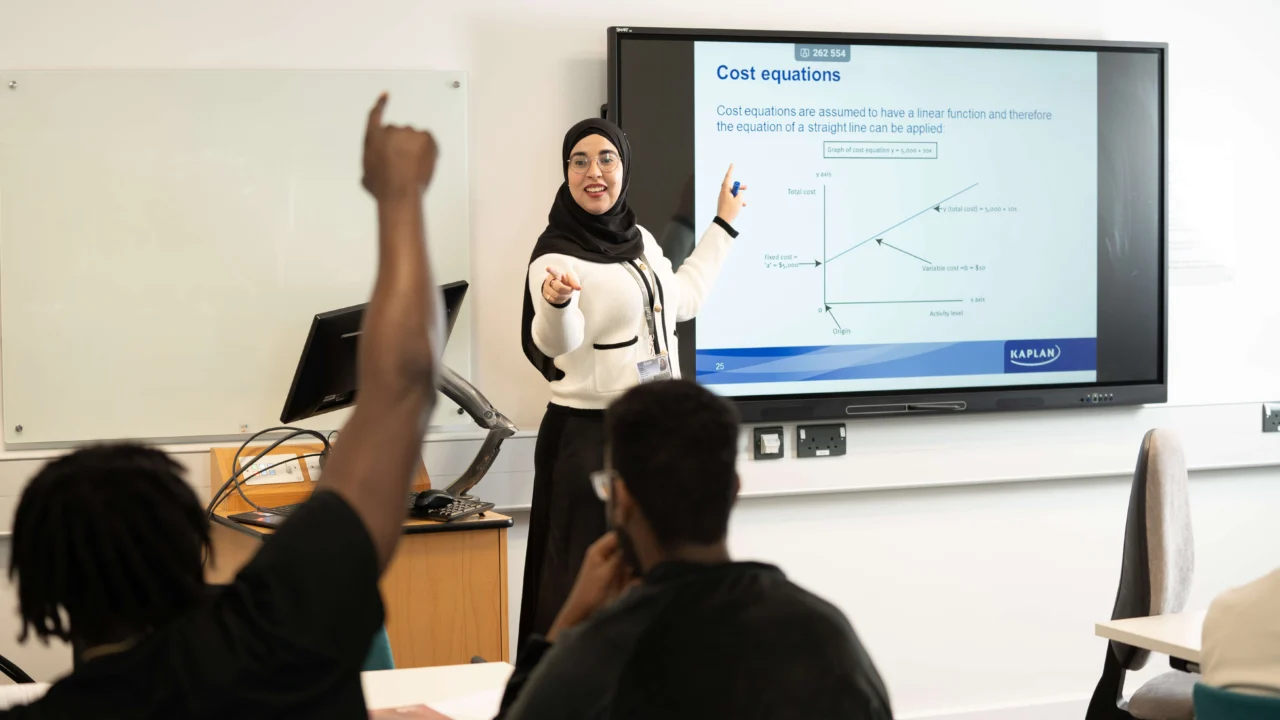
Interested in a different start date?
Discover how entrepreneurial thinking and purposeful leadership drive innovation and change. The BSc (Hons) Business and Entrepreneurship at Birmingham Newman University is designed for individuals who want to shape the future of business through creativity, resilience and ethical leadership. Whether you’re planning to launch a start-up, lead within an organisation or support enterprise in your community, this course gives you the tools to turn ideas into action. You’ll explore how business can be a force for good, balancing commercial success with social responsibility. The course combines academic study with practical experience, encouraging you to think critically about the role of enterprise in society. By the end of your studies, you’ll understand how to create, manage and grow sustainable ventures.
Foundation Year
Birmingham Newman University offers a foundation year to complement our undergraduate degrees. The Foundation Year is the first year of a four-year degree in BSc (Hons) Business and Entrepreneurship with Sandwich Year
The foundation year provides an alternative route to studying Business and Entrepreneurship for those unable to meet the traditional entry requirements for this degree programme.
The Foundation Year is the first year of a four-year undergraduate degree at Birmingham Newman University. It offers a flexible route into higher education for students who may not meet standard entry requirements or who are returning to study after time away. Whether you are exploring a new direction or looking to strengthen your academic foundations, this additional year of study provides the structure, support and space to help you succeed.
You’ll apply through UCAS for your chosen degree with Foundation Year. Once you’ve successfully completed the Foundation Year and met the progression criteria, you’ll move into Year 1 of your undergraduate course.
Who is the Foundation Year for?
• This route is designed for students who:
• Are returning to education after a break
• Do not currently hold the qualifications for direct entry onto a three-year degree
• Want to build confidence and academic skills before starting undergraduate study
• Are seeking a structured and supportive introduction to university life
You’ll be part of a learning community that recognises your potential and supports your development from the very beginning. The Foundation Year is not just a pathway into university. It is a purposeful and personalised start to your academic journey.
What Will I Study?
The Foundation Year focuses on helping you become a confident, reflective and independent learner. You’ll begin by exploring how you learn and identifying strategies that work for you. You’ll also engage with wider themes such as identity, inequality and the human experience in a digital world. These topics encourage critical thinking and personal insight, while connecting across subject areas.
You’ll develop core academic skills including writing, research, digital literacy and communication. These are taught through seminars, workshops, online activities and one-to-one support. The aim is not only to prepare you for your chosen subject, but to help you feel connected to your learning and to the university community.
‘For someone returning to education after a hiatus, this foundation (year) was essential in helping me regain my academic footing and feel prepared for the challenges ahead.’ – Alix Wyatt, Birmingham Newman University Alumna
What Happens After the Foundation Year?
Once you’ve successfully completed the Foundation Year and met the progression requirements, you’ll begin Year 1 of your undergraduate degree. You’ll already be familiar with the university environment, your subject area and the expectations of academic study, giving you a strong foundation to build on.
Book a free consultation
Not sure which course fits your goals? Book a free consultation with an Academic Life Coach today
Why study this course
Studying Business and Entrepreneurship at Birmingham Newman University offers more than a foundation in business theory. It’s a chance to explore how innovation, ethics and leadership come together in today’s global economy. You’ll be supported to develop your own ideas, challenge assumptions and build a professional identity that reflects your values. The course is designed to help you grow as a reflective practitioner who can respond to change and lead with purpose. You’ll benefit from a curriculum that balances academic rigour with practical relevance.
Explore the Practice of Enterprise and Innovation
You’ll engage with topics that reflect the realities of launching and managing ventures, including market analysis, digital strategy, financial forecasting and responsible leadership. These areas are explored through applied projects, peer collaboration and real-world simulations. Optional modules allow you to tailor your learning to areas such as social innovation, e-commerce or global entrepreneurship. The course promotes a hands-on approach, with opportunities to pitch ideas, develop prototypes and receive feedback from industry professionals.
Supportive and Professional Learning
At Birmingham Newman University, you’ll be part of a learning community that values your perspective and supports your development. Teaching is delivered by experienced academics and industry professionals who offer personalised guidance throughout your studies. With small class sizes, regular feedback and a focus on practical learning, you’ll be encouraged to build confidence and prepare for a successful future in business. You’ll also have access to mentoring, enterprise support and wellbeing services that enhance your university experience.
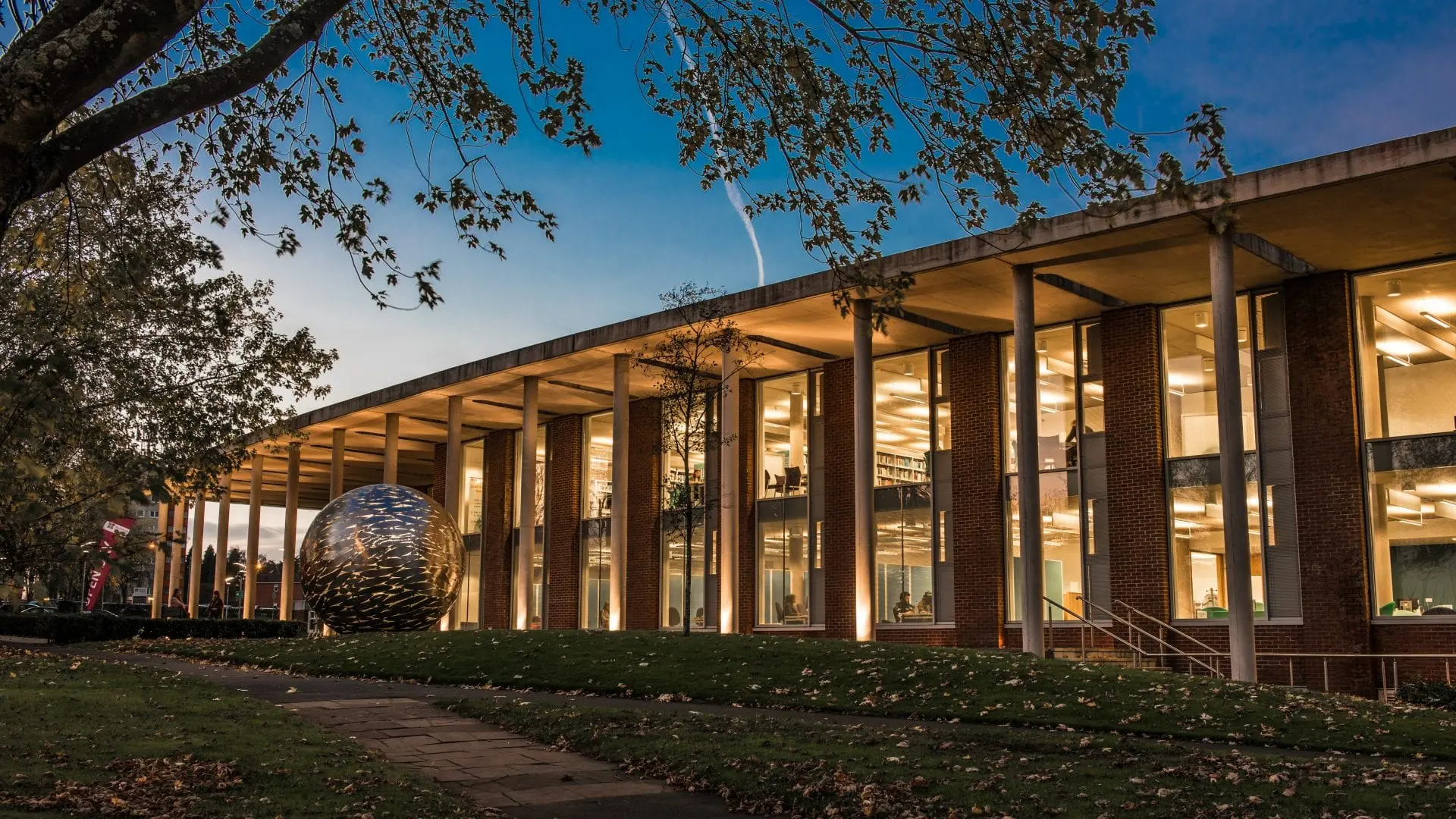
Got a question you’d like to ask?
Entry requirements
We welcome students from all backgrounds and accept a wide range of qualifications. If yours aren’t listed, don’t worry – our Admissions Team can help you explore your options. See full entry requirements.
Entry requirements, for UK home students: 48 UCAS points
Those with significant work and life experience of a complexity that demonstrates an aptitude to study at degree level, but with no formal qualifications, will also be favourably considered.
Different degree pathway options available at the end of the foundation year may have different additional entry requirements.
If you require any further information or clarification of entry requirements please contact our friendly, helpful Admissions department, who will be happy to help.
Please contact Admissions if you have any questions.
Course fees
The tuition fee for academic year 2026/27 is: £5,760. Tuition fees for courses starting April to May 2026, fall within the 2025/26 academic cycle.
Fees for the 2025/26 academic year can be found on our Student Finance pages.
Additional costs
The University will review tuition fees and increase fees in line with any inflationary uplift as determined by the UK Government, if permitted by law or government policy, in subsequent years of your course. It is anticipated that such increases would be linked to RPI (the Retail Price Index excluding mortgage interest payments).
Check out our blog/news/events
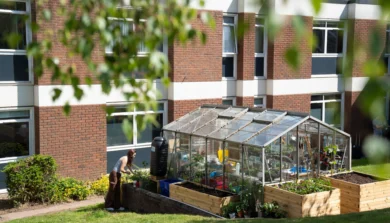
Birmingham Newman Celebrates Green Week 2026 with Campus‑Wide Events
Birmingham Newman will host its annual Green Week from 23 to 27 February 2026, bringing…
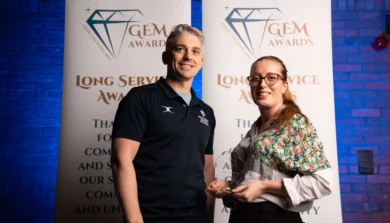
Research that makes a difference: Mark Holland wins Most Impactful Project Award
In December, we held our Staff Awards, where we recognised the outstanding achievements of colleagues…

Sports Coaching students Deliver Coaching Sessions for Local Primary Pupils
Birmingham Newman University recently welcomed pupils from St Peter’s Primary School to campus as part…

Vice-Chancellor Professor Jackie Dunne awarded MBE in New Year Honours
Vice-Chancellor of Birmingham Newman University receives an MBE for services to Higher Education.

Birmingham Newman University Celebrates Staff Achievements at Annual Awards
Birmingham Newman University celebrates its staff at the Annual Staff Awards Celebration.

Book an open day
Find out about our next open day. Book now to secure your place.
Placement information
Throughout your BSc (Hons) Business and Entrepreneurship course, you’ll engage with practical opportunities across Birmingham, the West Midlands and surrounding areas. These experiences are carefully integrated with your academic modules to support your development. You’ll be guided by experienced entrepreneurs and supported by university staff, with progress monitored through structured reflection and assessment. You’ll also collaborate with local businesses, social enterprises and startup networks, helping you to build insight, confidence and a deeper understanding of entrepreneurial practice. These opportunities are designed to help you apply theory to real-life scenarios and grow into a capable and reflective graduate.

Studying and living in Birmingham
At Birmingham Newman University, you’ll enjoy the best of both worlds: a peaceful, green campus that creates the ideal setting for focused study and personal reflection, yet remains just eight miles from the vibrant city centre.
As the UK’s second-largest city, Birmingham is also one of the youngest and most diverse in Europe, offering a dynamic blend of culture, innovation and opportunity. From world-renowned museums and music venues to a thriving food scene alongside a growing business and tech sector, it’s a place where creativity and ambition naturally thrive.
Experience Birmingham: A City full of possibilities
Whether you’re discovering the Midlands for the first time or already know the area well, Birmingham provides a lively and inclusive environment for students. As one of the most energetic and multicultural cities in the UK, it’s a place where you can grow academically while developing personally. Its rich cultural heritage, creative energy and broad range of opportunities make it an inspiring backdrop for your university journey.
A City that loves great food
Birmingham is a brilliant place to explore diverse culinary experiences. You might wander through the famous Balti Triangle, sample global street food at Digbeth Dining Club or enjoy a relaxed meal by the canals in Brindleyplace. The city is also home to independent cafés, vegan-friendly eateries and countless hidden gems. Whether you’re grabbing a quick bite between lectures or planning an evening out, there’s always something new to discover.
Arts, culture and entertainment
The city pulses with creativity. You could catch live music at the O2 Academy, experience a world-class performance at the Birmingham Hippodrome or browse exhibitions at the Birmingham Museum and Art Gallery. Creative spaces like the Custard Factory showcase local talent while hosting events that celebrate innovation. With festivals, sporting fixtures and cultural celebrations taking place year-round, there’s never a shortage of things to enjoy.
Simple & convenient travel
Getting around Birmingham is straightforward thanks to its well-connected public transport system. Buses, trams and trains make it easy to reach campus, explore the city or travel further afield. Whether you’re commuting daily or heading off for a weekend adventure, transport is both accessible and affordable.
Life beyond the lecture Hall
Your time at Birmingham Newman University extends far beyond academic study. You’ll have the chance to join student societies, contribute to community projects or try something entirely new. The University’s supportive atmosphere encourages you to build confidence, develop practical skills and feel genuinely at home throughout your studies.
View our campus
What careers can I consider
Graduates from this programme are well-prepared for careers in business development, consultancy, innovation management and/or social enterprise. You might choose to start your own venture, join a growing organisation or continue your studies at postgraduate level. The course equips you with the confidence, insight and adaptability to succeed across sectors. Alumni have gone on to work in industries such as technology, retail and the third sector. Birmingham Newman’s Careers and Employability Service offers tailored support, including mentoring and guidance on further study or employment.
Accreditations and exemptions
The BSc (Hons) Business and Entrepreneurship is a university-accredited undergraduate degree awarded by Birmingham Newman University. While the course is not currently accredited by a professional body, it is designed to prepare you for further study or qualifications in areas such as marketing, finance and/or business leadership. You’ll have access to startup incubators, mentoring from experienced entrepreneurs and opportunities to pitch your ideas to potential investors. These experiences are built into the course to help you develop a strong foundation for self-employment or leadership roles within existing organisations. The curriculum is regularly reviewed to ensure it reflects the needs of today’s business environment.
Courses we think you'll also like
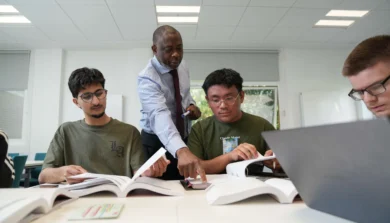
BSc SH Business and HR Management with foundation and sandwich years
- Start date:
- September 2026
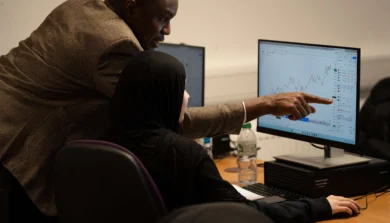
BSc Single Honours Business, Accounting and Finance with foundation and sandwich years
- Start date:
- September 2026

Business and Entrepreneurship (with Foundation Year) BSc (Hons)
- Start date:
- September 2026
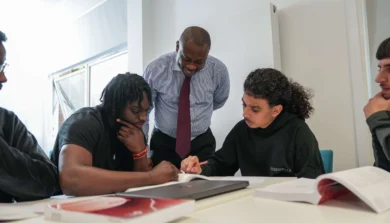
BSc SH Business and Marketing with foundation and sandwich years
- Start date:
- September 2026
